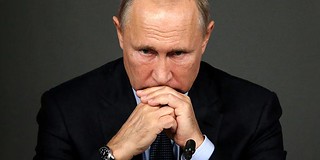Germany and the bias of talking about the 'extreme right' but not the 'extreme left'
Many journalists and traditional media sometimes wonder about the reasons for their loss of credibility among many users..
AfD is described as a 'far-right' and 'xenophobic' party
In the last few hours, we can see one of the reasons why many people have stopped paying attention to these media. Yesterday, the Alternative für Deutschland (AfD) party won in Thuringia and came second in Saxony. AfD is a party that combines conservative, liberal and patriotic elements with a discourse against illegal and mass immigration. In addition, it is one of the most pro-Russian parties in Germany, only surpassed in that by the communists of Die Linke, heirs to the single party of communist Germany.
AfD co-chair is a liberal, lesbian and her partner is from Sri Lanka
As expected, many media outlets today describe the AfD as a "far-right" and "xenophobic" party - which is curious, considering that AfD co-chair Alice Weidel (pictured) is a lesbian, her partner is from Sri Lanka and defines itself as a "liberal". This is a very strange profile for a party that many media outlets present with the above-mentioned qualifiers. Once again, reality and headlines contradict each other.
The very different treatment of the BSW communists
Things change if we look at the other side of the political map. In Thuringia, the Sahra Wagenknecht Alliance - For Reason and Justice (BSW) obtained 15.5% of the votes, coming in third ahead of the Social Democrats of the SPD (7.6%). The BSW has obtained 11.5% of the votes in Saxony. This is, without a doubt, one of the big surprises of these elections, since it is the first time that this party - founded in January - has run in elections.
Unlike the AfD, the BSW is a breakaway party from the communists of Die Linke. The new party combines communist economic policies with a discourse critical of mass immigration, which may explain its success among left-wing voters. The BSW also shares the pro-Russian discourse of Die Linke. Despite its communist origins and positions, almost no media today describe the BSW as "far left" or "xenophobic". Why? Is communism simply left-wing?
The obvious leftist bias of many journalists
If a speech critical of mass immigration causes a conservative party to be labelled as "extreme right" and even "neo-nazi" by many media, why are communists not subjected to the same standard? The reason is, perhaps, the same as why many media do not classify as "extreme left" parties that support socialist and communist dictatorships such as Cuba, Nicaragua or Venezuela.
Journalism is a profession where the left is the dominant current and that is why it whitewashes the most extreme left, because they are its friends. The problem for traditional journalism is that social networks increasingly reveal this bias: with tools like Twitter, the media no longer have a monopoly on information and it is now easier to contrast and challenge their manipulations. Perhaps that is why many journalists view with such sympathy the authoritarian speeches calling for censorship on this social network.
---
Photo: Berliner Morgenpost. Alice Weidel, co-president of Alternative für Deutschland.
|
Don't miss the news and content that interest you. Receive the free daily newsletter in your email: Click here to subscribe |
- Most read
- The history of the Spanish woman murdered in the Twin Towers on September 11, 2001
- Russian forces have already lost more than 10,000 armored vehicles in Ukraine
- Maduro kidnaps Spaniards taking advantage of Sánchez's weakness and complicity
- The new Frecce Tricolori planes and their new design, a work of Pininfarina
- The National Museum of Science and Technology of La Coruña and the Boeing 747 inside it
- Lenin: numbers, data and images of the crimes of the first communist dictator
- Leftist blindness about today's dictatorships calls into question its 'historical memory'

 ES
ES





Opina sobre esta entrada: